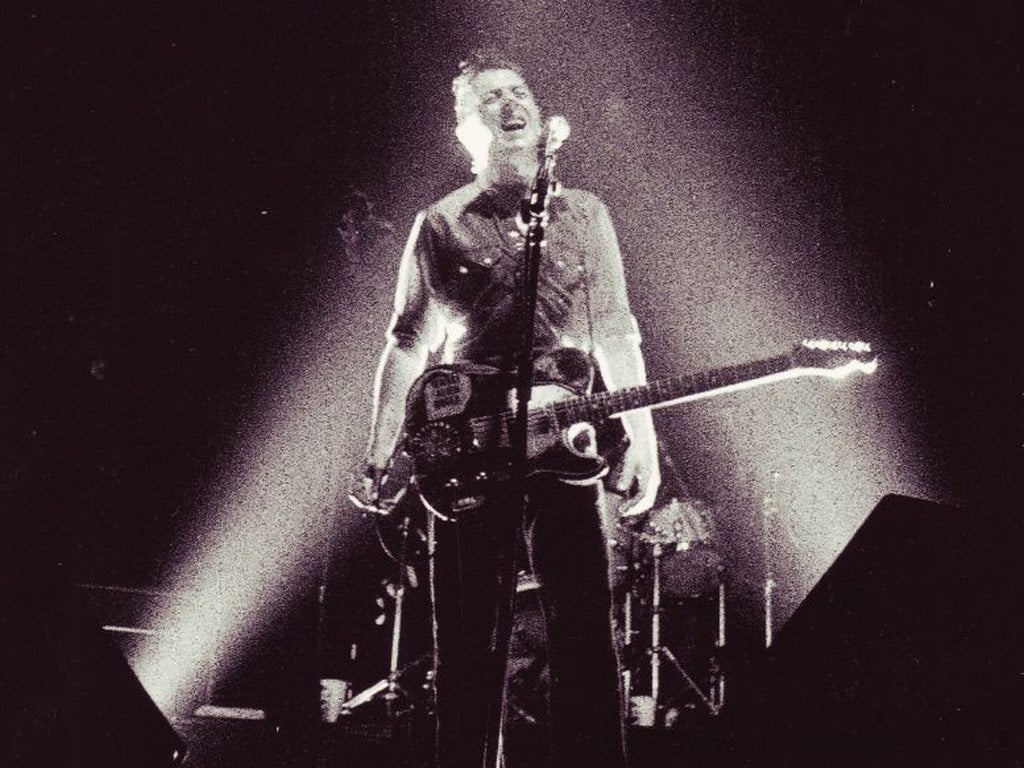A place where all the young punks can play to win
Nine years after his death, The Clash's rhythm-guitarist, Joe Strummer, is still supporting new talent. By Ian Burrell

Never mind a burning candle, there are camp fires still blazing in memory of Joe Strummer, almost a decade after he died. The legacy of The Clash figurehead is most obvious at a single-storey building by the Westway, the thundering, concrete thoroughfare in west London that he sang about in "London's Burning".
This is the headquarters of the "Strummerville" charity, which has released a 2012 calendar to mark the 10th anniversary of Strummer's death on 22 December this year. Horse stables, caravans, and the Strummerville painted charabanc outside recall an era before officials took over the world; the scene is wholly appropriate for a musician who had no truck with petty rules.
Inside, young musicians such as folk singer Beans on Toast (Jay McAllister) are tapping away at laptops. Strummer crafted original hits with lyrics that were intended to inspire, and when he achieved fame he didn't pull up the ladder but famously remained approachable to anyone he met.
Peter Hooton, who became the singer for The Farm, remembers when, as a teenager, he blagged his way backstage at a Clash gig in Paris and was eating a banana from the band's rider when Strummer walked in and met Hooton's apology with the words: "Hey, we're The Clash, man – you do what you like!" Don Letts, a long-time compadre of The Clash who chronicled the band's journey in the film Westway to the World, says "In a cultural climate that feels like punk never happened the likes of Strummer are truly missed. Who speaks for you now?"
Strummerville's director, Trish Whelan, is trying to maintain an ethos where young people feel comfortable expressing themselves through music. The charity's website gives a platform to aspiring artists, who can offer free downloads and links to their bands' websites. "It gives them a platform to communicate with a community of people who actually care," she says.
The scheme has grown to 150,000 downloads a month, with success stories such as Mumford & Sons. In recognition of Strummerville's contribution, they headlined the charity's Glastonbury concert, which takes place around a camp fire close to the Joe Strummer memory stone at his favourite festival site.
One of the bands that Strummerville has championed – Bastille – reached No 1 in a chart compiled by the New York-based global music site Hype Machine. But Strummerville is not set up to create pop stars – that wasn't what Strummer was about. "We have over 400 bands we have been helping," says Whelan. "We are not a label, so there's no ulterior motive for us. It's not a training ground for pop stars, it's about helping people express themselves through music."
Another Strummerville graduate was Anna Calvi, who was nominated for this year's Mercury Music Prize. Contributions have come from Big Audio Dynamite (whose founder, The Clash guitarist Mick Jones, is a valued supporter) and the T in the Park and V festivals. Artist Damien Hirst is a Strummerville patron and has donated pieces of art for fundraising.
Strummer's widow, Lucinda, is "thrilled" by the interest in the charity. "Joe had such a big influence and seemed to touch so many," she says. "I see a similar energy to Joe's in lots of the bands we have been helping over the years, artists who have something important to say especially in these troubled times."
With Joe Strummer it was never about the past, as is clear from the many "Strummerisms" printed in the calendar. He felt a duty to urge people to look to themselves to change the world for the better. "The Future is Unwritten," as January's entry says.
Join our commenting forum
Join thought-provoking conversations, follow other Independent readers and see their replies
Comments
Bookmark popover
Removed from bookmarks